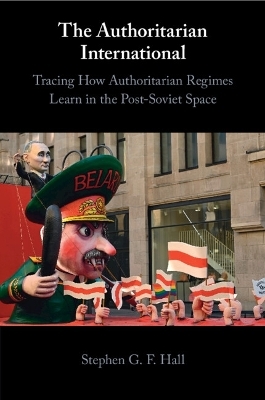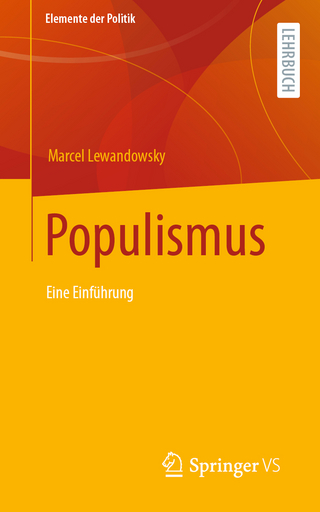
The Authoritarian International
Tracing How Authoritarian Regimes Learn in the Post-Soviet Space
Seiten
2024
Cambridge University Press (Verlag)
978-1-009-09632-4 (ISBN)
Cambridge University Press (Verlag)
978-1-009-09632-4 (ISBN)
Focusing on Russia and Eastern Europe, Hall argues that democracies can preserve their norms and values by better understanding how authoritarian regimes learn. It will be of interest to scholars, advanced students, and policymakers concerned with the politics of authoritarianism, and the politics of Russia, and Central and Eastern Europe.
Stephen Hall argues that democracies can preserve their norms and values from increasing attacks and backsliding by better understanding how authoritarian regimes learn. He focuses on the post-Soviet region, investigating two established authoritarian regimes, Belarus and Russia, and two hybrid-regimes, Moldova and Ukraine, with the aim of explaining the concept of authoritarian learning and revealing the practices that are developed and the sources of that learning. Hall finds clear signs of collaboration between countries in developing best survival practices between authoritarian-minded elites, and demonstrates that learning does not just occur between states, rather it can happen at the intra-state level, with elites learning lessons from previous regimes in their own countries. He highlights the horizontal nature of this learning, with authoritarian-minded elites developing methods from a range of sources to ascertain the best practices for survival. Post-Soviet regional organisations are crucial for the development and sharing of these survival practices as they provide 'learning rooms' and training exercises.
Stephen Hall argues that democracies can preserve their norms and values from increasing attacks and backsliding by better understanding how authoritarian regimes learn. He focuses on the post-Soviet region, investigating two established authoritarian regimes, Belarus and Russia, and two hybrid-regimes, Moldova and Ukraine, with the aim of explaining the concept of authoritarian learning and revealing the practices that are developed and the sources of that learning. Hall finds clear signs of collaboration between countries in developing best survival practices between authoritarian-minded elites, and demonstrates that learning does not just occur between states, rather it can happen at the intra-state level, with elites learning lessons from previous regimes in their own countries. He highlights the horizontal nature of this learning, with authoritarian-minded elites developing methods from a range of sources to ascertain the best practices for survival. Post-Soviet regional organisations are crucial for the development and sharing of these survival practices as they provide 'learning rooms' and training exercises.
Stephen G. F. Hall is a Lecturer at the University of Bath, specialising in authoritarian and post-Soviet politics.
1. Introduction – A Contextual Overview; 2. Measuring Authoritarian Tendencies in Belarus, Moldova, Russia, and Ukraine; 3. Learning from External Failure; 4. Learning from Internal Failure; 5. Learning from External and Internal Success; 6. The Role of Regional Organisations in Authoritarian Learning; 7. External and Internal Learning in State Institutions; 8. How External and Internal Informal Networks Shape Learning in Belarus, Moldova, Russia, and Ukraine; 9. Conclusion.
| Erscheinungsdatum | 17.08.2024 |
|---|---|
| Zusatzinfo | Worked examples or Exercises |
| Verlagsort | Cambridge |
| Sprache | englisch |
| Gewicht | 437 g |
| Themenwelt | Sozialwissenschaften ► Politik / Verwaltung ► Vergleichende Politikwissenschaften |
| ISBN-10 | 1-009-09632-X / 100909632X |
| ISBN-13 | 978-1-009-09632-4 / 9781009096324 |
| Zustand | Neuware |
| Haben Sie eine Frage zum Produkt? |
Mehr entdecken
aus dem Bereich
aus dem Bereich
Geschichte, Parteistruktur, Radikalisierung
Buch | Softcover (2024)
UTB (Verlag)
27,90 €


